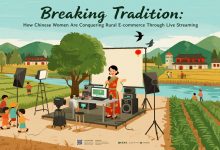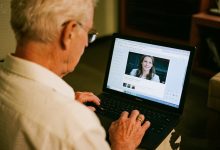On day 101, Sarah made a life-changing decision.
She deleted the visiting nurse app from her phone and swore she’d never take another gig. Never again would she drag her 7-year-old daughter out of bed at 5 AM to sit in a freezing car while mom gave injections to strangers.
Sarah’s story began on a cold morning and ended with a crushing realization about what’s really happening behind closed doors in America. After 100 days as a gig-economy nurse, she’d seen enough to know that sometimes the most expensive healthcare can’t cure the cheapest problem: loneliness.
Here’s what she told me.
“I Saw Desperation and Fear”
I’m Sarah, 30 years old, been nursing for 10 years. When my first kid was born in 2019, morning sickness was so bad I had to quit my hospital job. Then surprise pregnancy number two in 2021. Lying in that hospital bed, I actually cried thinking about how we’d afford two kids.
But life goes on, right?
By 2024, I was back at work – regular nursing job during the week, gig nurse on weekends. All you need is your RN license, 5+ years experience, and desperation for extra cash. My husband’s startup wasn’t exactly printing money, and in this economy, a $60K hospital salary doesn’t stretch far with two kids.
My first gig? December 2nd, 6:20 AM injection. A nurse friend passed it to me when she couldn’t make it. I’m dragging my kid out of bed before sunrise, both of us bundled up on my electric bike, riding 40 minutes across town.
The patient was Janet, mid-50s, living alone in a cluttered apartment. Hair a mess, faded yellow sweater, holding an old blanket when she answered the door. The second I saw her, I knew this wasn’t just about the blood thinner injection.
“Nurse, they say you have to remove air bubbles…” she said, grabbing my wrist with trembling hands.
I could see the doubt in her eyes. Here’s this woman, alone with a blood clot condition, scared of the very treatment that’s supposed to help her. I explained the pre-filled syringe tech, showed her the safety mechanism, but all I could think about was my daughter shivering in the bike downstairs.
That’s when I asked the question that changed everything: “Where’s your family?”
“Don’t have kids. Never married.”
The silence hit different. Here I am, rushing through her care so I can get back to my own child, and this woman has no one. Nobody to call when she’s scared. Nobody to take out her trash – I saw five bags piled by her door.
On the second visit, when I had more time, she broke down completely.
“You know what terrifies me? It’s not today’s problems. It’s what happens when today’s problems are solved and new ones show up. How do I handle those alone?”
I hugged her while she cried. What else could I do? I promised her that other nurses could help if I wasn’t available, brought her cafeteria food, took her garbage. Small things that felt huge to her.
But I knew it wasn’t enough. Money can buy medical care. It can’t buy someone to give a damn.
“Two Caregivers, Zero Peace of Mind”
Most of my patients were elderly folks whose families could afford to outsource their care but not their time. Take Mrs. Rodriguez – 85, bedridden after spinal compression fractures, living in a gorgeous house in the suburbs with two full-time caregivers.
Two caregivers! Round-the-clock care! And still, she was terrified.
“Honey, come watch!” she’d yell to her husband every time I needed to do anything – even something as simple as removing a catheter.
The caregivers would roll their eyes. Her husband would grumble from his recliner. But Mrs. Rodriguez needed him there. Not because the caregivers couldn’t handle it – they were professionals. She needed family.
Her bedside table looked like a pharmacy exploded. Pills for diabetes, blood pressure, constipation, anxiety – you name it. I counted 23 different medications she was taking daily. Some were capsules so big I don’t know how she swallowed them.
“She just keeps adding more pills whenever something hurts, never thinking about drug interactions or what it’s doing to her liver,” her husband complained.
The irony was crushing. Here’s a woman surrounded by professional care, living in luxury, taking imported supplements that cost more than most people’s rent. But she didn’t know basic things like when to take her blood pressure meds (morning) versus cholesterol meds (evening).
Her kids? Busy. Too busy. The son who ordered my services? Never saw him once. The daughter visited once – high school teacher, “super busy with work.”
The caregivers handled everything – feeding, bathing, turning her to prevent bedsores. But when it came time for medical decisions, Mrs. Rodriguez only trusted family. The people who were never there.
On my last visit, she grabbed my hand: “Sweetheart, could you just come talk to me sometimes?”
I looked at my phone. Three more houses waiting. This city’s full of smart homes and next-day delivery, but we can’t deliver what these people actually need: someone who cares enough to stay.
“Walking the Tightrope Between Money and Risk”
The gig nursing world is brutal. It’s all about balancing three impossible things: making enough money, managing insane risks, and not completely destroying your personal life.
Take this one February morning. 7 AM blood draw, patient wanted me there by 6:30. I’m up at 5, first subway at 5:20, arrive at 6:20 in some fancy building near downtown. Except the address was wrong. I spent 20 minutes wandering around in freezing weather looking for the right unit.
The platform rules are crazy strict – no personal contact with patients, everything recorded, no flexibility. I get it, it’s for protection, but try explaining a safety syringe to a scared 80-year-old while your phone is recording everything and you can’t even text them the correct address.
The money math is depressing. $110 per injection, platform takes their cut, I’m left with maybe $90. Factor in 2-3 hours of travel time, and I’m basically making minimum wage.
The only decent-paying gigs? High-risk stuff I couldn’t touch.
Like this one afternoon – got a request for “blood pressure check” on an 85-year-old, paying $268. Way more than normal. My gut said something was off.
“Why would someone pay nearly $300 for a blood pressure check when they could buy a monitor for $50?”
I called the family. Could hear crying in the background. This wasn’t a blood pressure check – this was end-of-life care. They wanted a nurse to sit with someone dying. I cancelled immediately.
I know nurses who specialize in hospice gigs – $1,000 a day to monitor someone’s final hours. But I’m a mom. I can’t disappear for days to watch strangers die while my own kids need me at home.
The liability is insane. Sure, they give you $300K insurance, but that’s nothing if someone dies on your watch. One bad outcome and your career is over. Your life is over.
I never told my hospital job about the gig work. Technically allowed, but try explaining to your boss why you need to leave early to “make extra money helping competitors.” When colleagues asked why I left early sometimes, I just said I was driving Uber.
“The Day I Said Never Again”
February 15th, 5:30 AM. I’m pulling my daughter out of bed again for some kid’s blood draw across town. She’s crying, grabbing my shirt, the alarm scares her awake. Her dad, who’d been working all night, finally lost it.
He called my parents. Had them gang up on me.
“Are you seriously that desperate for money? You’re torturing our granddaughter for what, $90?”
That hurt because it was true. I was choosing money over my kid’s well-being. I was becoming the same kind of person I criticized – too busy working to take care of the people who actually mattered.
The final straw came a month later. Missed a blood draw appointment, family cancelled, platform blamed me for “losing revenue.” They docked me $50. Fifty dollars! For trying to protect a patient from unnecessary travel.
That night, I deleted the app.
The thing is, I still believe in what visiting nurses do. People need this service. The elderly, the disabled, busy families – they all benefit from professional home healthcare. But the current system is broken.
We need community-based solutions. Nurse stations every few blocks, limited to 2-mile radius, proper backup support. Not this Wild West gig economy where nurses risk their licenses for below-minimum-wage pay while billion-dollar platforms take 20% cuts.
Three months later, my phone buzzed at 5 AM. For a split second, I reached for my nursing bag. Then I remembered – I don’t do this anymore.
But I did text Janet: “Making dumplings this weekend. Want to teach my daughter your recipe?”
She sent back a smiley face and said she’d been saving milk in the fridge for my kid.
See, the cure for loneliness was never about apps or algorithms or $300 house calls. It was about humans choosing to show up for each other, even when there’s no money in it.
Sometimes the most important medicine can’t be delivered – it has to be given freely.
Names and identifying details have been changed to protect privacy. Sarah’s story reflects the experiences of many gig-economy healthcare workers across America.








